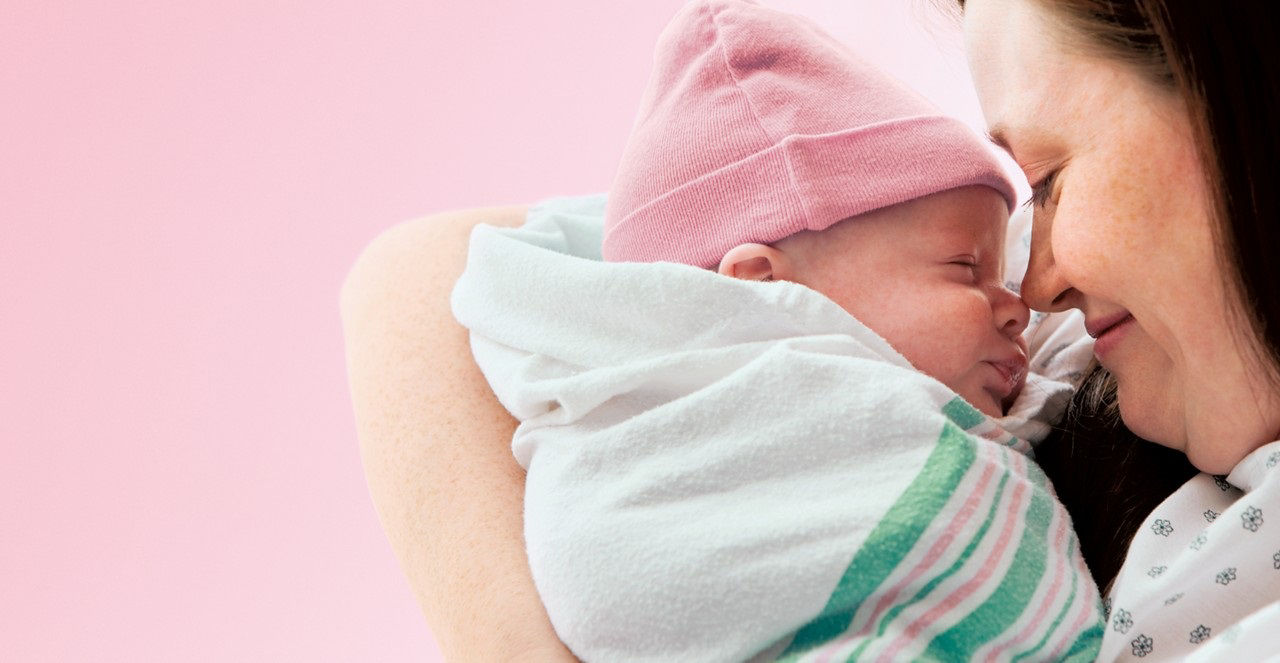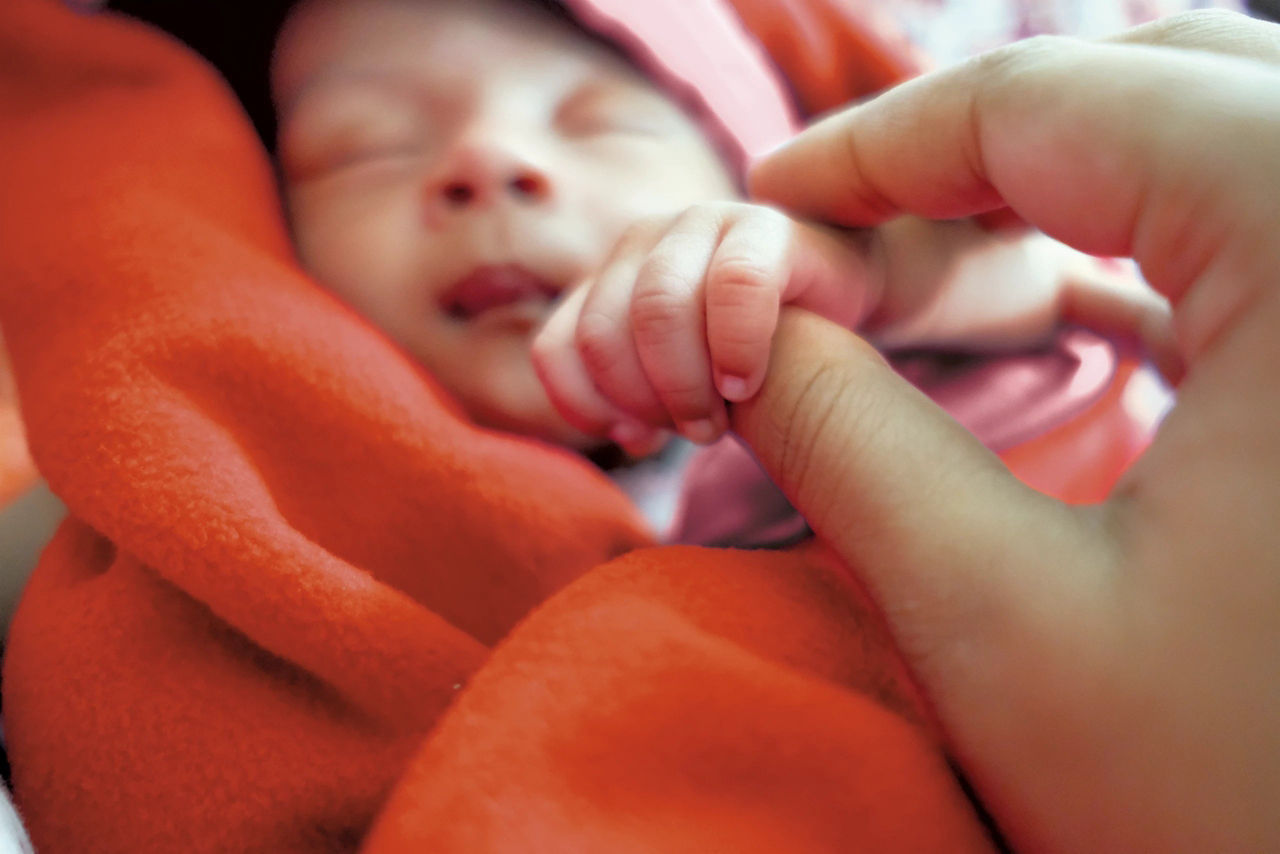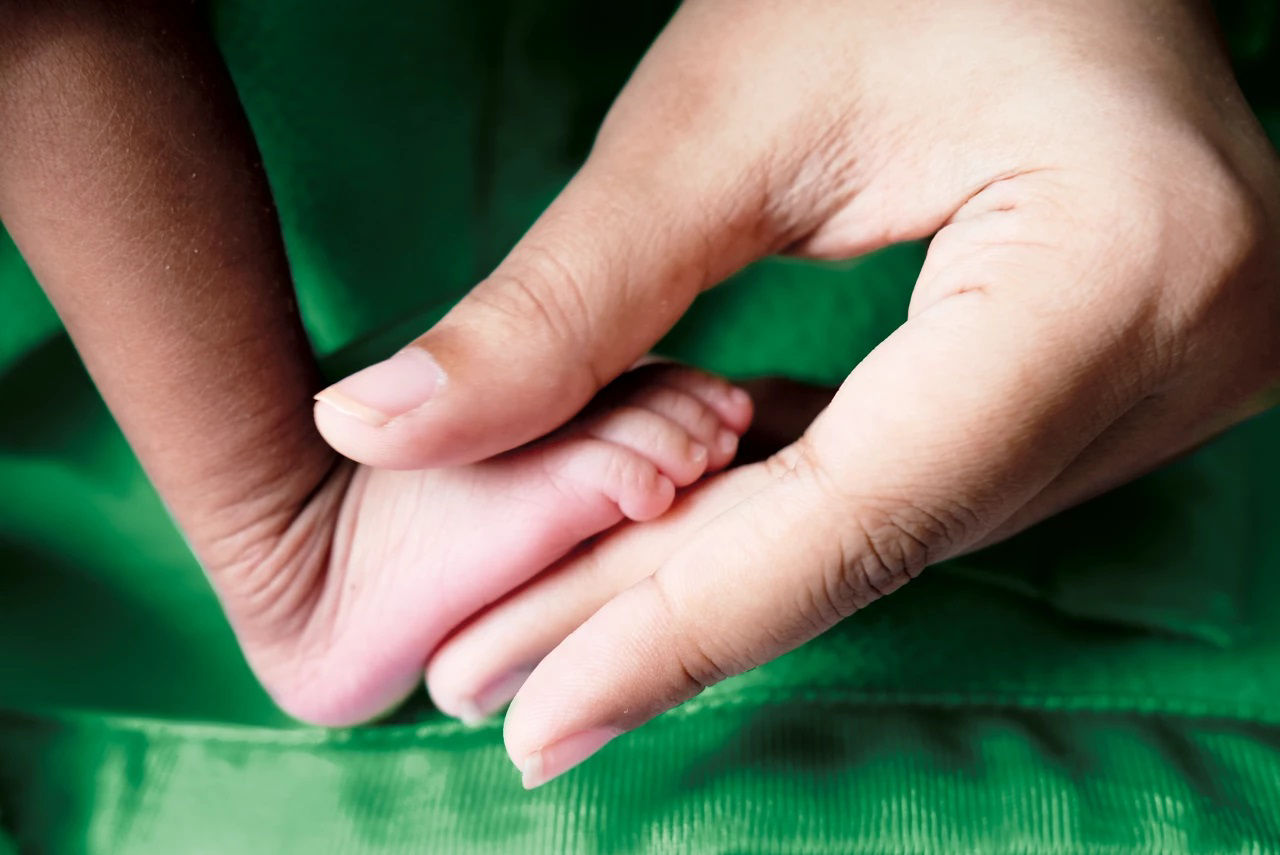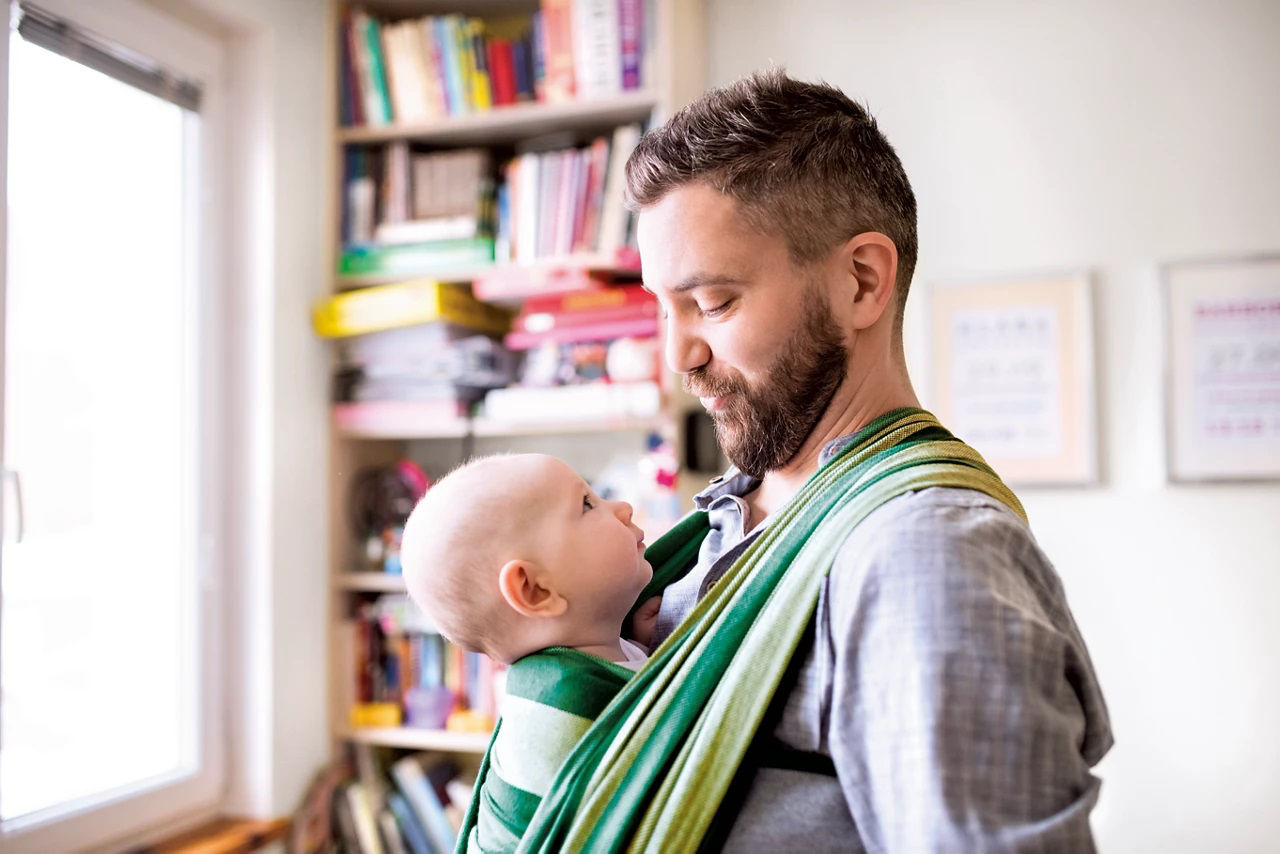Free weaning plan - Register here
Sleeping positions for your premature baby
During their time in hospital, your baby may have spent much of their time lying on their front. But now they’re at home, you’ll need to get them used to sleeping on their back. This can take time and patience but stick with it, as this position could help to reduce the risk of cot death. Most neonatal units introduce babies to sleeping on their backs during their last couple of weeks in hospital, which helps make things easier at home.
Your baby may also make noises and move around a lot in their sleep – but don’t worry, this is very common with a premature baby, and they’re probably sleeping more soundly than they look.
The benefits of premature baby massage
Premature babies can benefit a great deal from baby massage. It can help improve their:
• Immune system
• Sleep
• Circulation
• Digestion, including relieving symptoms of colic and wind
• Skin condition
It’s also a lovely, soothing way for you to bond with your baby. If you’d like to try it, you can learn baby massage techniques from classes as well as books and websites, but here are a few basic guidelines:
• Make sure the room you’re massaging in is peaceful, and warm enough for your baby.
• Lay your baby on something comfortable, like a thick towel on top of a waterproof mat.
• Warm up your hands first.
• Use baby-safe oil – pure olive, almond or baby oil should be fine.
• Use gentle strokes – to find out how hard to massage, close one of your eyes and press gently on it with a finger but stop before it becomes uncomfortable; this is about the right amount of pressure to use on your newborn.

This is an important part of premature baby care. Since a baby’s immune system takes a while to build up, all babies can be prone to infection. But if your newborn was very premature or needed help with their breathing, they may be at greater risk of getting infections that can affect their lungs. So, until your baby gets stronger, it’s a good idea to take some sensible precautions:
• Avoid crowded public places and large groups of young children.
• Avoid large, air-conditioned buildings, such as indoor shopping centres.
• Ensure visitors wash their hands before having contact with your baby.
• Keep your baby away from people with a cold or fever.
Don’t be surprised if your premature baby gets a bit ‘snuffly’ once they come home. This is probably due to the change in environment – going from the hospital to a normal home. It could take your baby a few weeks to acclimatise, but as long as their temperature is normal and they are feeding and sleeping, there should be nothing to worry about. If you are at all concerned, mention it to your health visitor or GP.
Going back to hospital
It’s not uncommon for some premature babies to suffer minor setbacks after coming home, which can mean a return to hospital. And, unless it’s very soon after they were discharged, your baby will probably be admitted to the nearest children’s ward, rather than back to a neonatal unit. If this happens with your baby, try not to worry or feel too disheartened, the doctors and nurses there will still have expertise in premature baby care, and your baby will probably be back home again in no time.
If you’d like to know more about premature baby care at home, our team is here to offer advice and support.

Join the C&G baby club today
- Weekly emails with tips and advice for your stage
- 1-to-1 support from our dedicated Careline team, 8.30am - 5.30pm Monday to Friday.

Join the C&G baby club today
- Weekly emails with tips and advice for your stage
- 1-to-1 support from our dedicated Careline team, 8.30am - 5.30pm Monday to Friday.
More from baby
Baby topics
Any more questions?
Our specialist baby advisors and experienced mums are here to talk and ready to help whenever you need them. You can call us or reach us on Live Chat 8.30am-5.30pm Monday-Friday.
Phone
Call 1800 570 570
FAQs
For all the latest information
Email Us
Send us an email
8.30 am - 5.30pm Monday-Friday


?ts=1701080527480&dpr=off)
